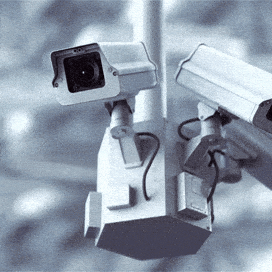
The TikTok drama has reached a boiling point, with days left before app officially exits the US. But behind the dance videos and viral trends lies a complex web of cybersecurity concerns, international relations, and data privacy issues. Let's break down what's actually happening and what it means for you.

The Key Players' POV
🇺🇸 What the U.S. is Saying:
TikTok's parent company, ByteDance, could be compelled by Chinese law to share user data with the Chinese government
The app could be used to influence American public opinion through its content recommendation algorithm
National security concerns extend beyond just data collection to potential surveillance capabilities
The company has failed to provide sufficient guarantees about data protection
📱 What TikTok is Saying:
They've never shared U.S. user data with the Chinese government and wouldn't do so if asked
Project Texas ($1.5 billion initiative) stores all U.S. user data on Oracle servers in America
The company is being unfairly targeted despite taking more data protection measures than other social platforms
They're willing to be more transparent about their algorithms and data practices
🇨🇳 What China is Saying:
The ban represents technological protectionism disguised as national security concerns
The U.S. is suppressing a successful Chinese company without concrete evidence
The move violates principles of fair market competition and international trade rules
American companies operate freely in China while Chinese companies face restrictions abroad
What TikTok Actually Collects
Before we dive into the security debate, let's look at what TikTok admittedly collects (all disclosed in their privacy policy):
Your personal info: Name, email, phone number, birthday
Device details: Model, ID, carrier, OS, IP address
Usage patterns: Every video you watch, like, and share
Location data: Both IP-based and GPS (if permitted)
Keystroke patterns and clipboard content
Third-party data: Information from partners, advertisers, and other apps
Payment details: When you make purchases
Contact lists: If you allow access

A Detail Worth Noting
Despite years of investigation and debate, there's currently no publicly available evidence that Chinese government officials have influenced what Americans see on TikTok or conducted cyber espionage through the app. However, the concern isn't about what has happened – it's about what could happen under Chinese law.
What Users Should Do Now
Whether TikTok gets banned or not, here are essential steps to protect yourself:
Audit Your App Permissions:
Disable unnecessary permissions like location tracking and contact access
Use TikTok only through a web browser instead of the app for better control
Regularly clear the app's cache and data
Data Hygiene:
Never link your TikTok account to other social media profiles
Use a unique password not shared with other accounts
Enable two-factor authentication
Avoid logging in through Facebook or Google
Content Awareness:
Be conscious of the content you interact with
Remember that the algorithm learns from every second you spend watching videos
Regularly check your Digital Wellbeing settings
🔍 Don't Get Got
While the political theater around TikTok is intense, the core security concerns are legitimate. The app's data collection practices and potential for influence operations present real risks that users should take seriously, regardless of whether a ban takes effect.
Forward this newsletter to friends who need to stay informed about digital security.
P.S. Your experiences matter. If you've encountered a scam or hack and have insights to share, we invite you to connect with us. Let's build a community that stands against cyber threats.
